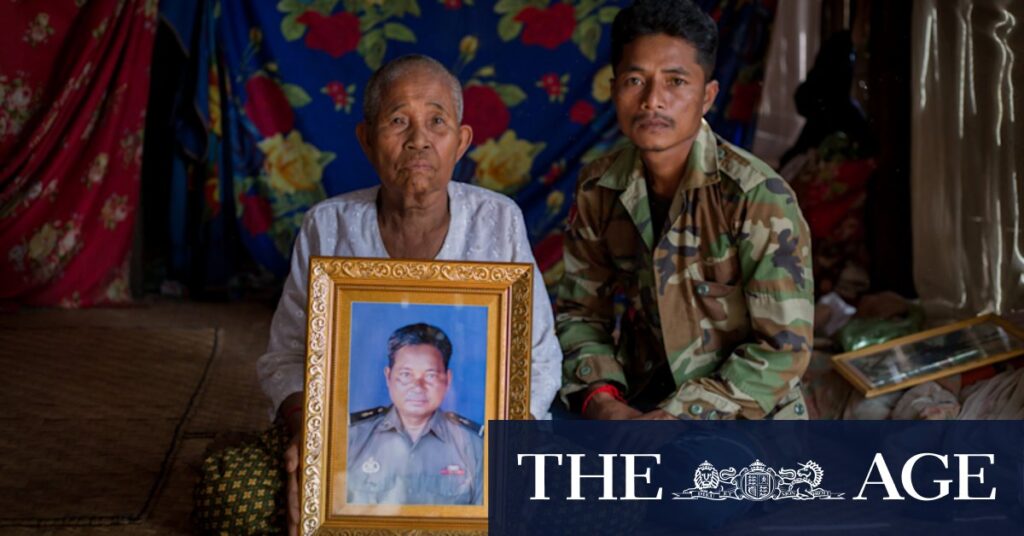
By first light on May 28, the men of Cambodia’s Battalion 395 had stirred from their remote jungle beds. Some were taking their morning coffee near a mountaintop trench, while others were pulling on uniforms. When Thai soldiers approached through dense foliage in the contested mountains of the Emerald Triangle, Cambodian Second Lieutenant Suon Roun was not yet dressed. The ensuing clash, set against a backdrop of historical tensions, has sparked a political upheaval in Thailand.
The incident, which resulted in the death of Second Lieutenant Suon Roun, has escalated into a diplomatic crisis. By Tuesday, a Thai court ordered the suspension of Prime Minister Paetongtarn Shinawatra, pending a decision on whether to remove her from office over a phone call with Cambodia’s de facto ruler, Hun Sen. This political turmoil highlights the long-standing and complex relationship between the two nations.
Historical Tensions and Recent Developments
The Emerald Triangle, where Cambodia, Thailand, and Laos converge, has long been a region of dispute. The recent clash is a stark reminder of the unresolved tensions that have simmered for decades. According to Suon Roun’s brother, Suon Eung, the Cambodian military commander present during the fighting explained that the confrontation began when Thai soldiers approached their position. “The sky was foggy at the mountaintop,” he recounted. “They exchanged fire with the Thais for about 20 minutes until negotiations were signaled.”
Thailand, however, denies initiating the conflict. Major General Winthai Suvaree, a Thai military spokesman, stated that Cambodian troops violated agreements by entering a disputed area. The Thai military released aerial images purportedly showing Cambodian encroachment, while Cambodia maintains it has occupied the disputed trench for years.
Political Implications in Thailand
The suspension of Prime Minister Paetongtarn Shinawatra has added a layer of complexity to the situation. Thailand, a significant economy in Southeast Asia, finds itself in a precarious position, wedged between Cambodia and Myanmar. The Shinawatra family, a dominant force in Thai politics for decades, faces a potential decline in influence amidst this crisis.
Meanwhile, Cambodia’s response has been swift and symbolic. The nation imposed border closures and banned Thai movies and soap operas, reflecting the nationalistic fervor that has gripped both countries. The incident has also brought international attention, given the geopolitical dynamics involving China and the regional power balance.
A Family’s Tragedy Amidst Political Turmoil
For Em Heap, the 85-year-old mother of Suon Roun, the political intrigue is of little concern. Living in a modest wooden home in Kampenh village, she has endured a lifetime of personal loss. Her family has been decimated by the Khmer Rouge regime and subsequent tragedies, including the deaths of several children.
“I feel very upset – I have lost so many children,” Em Heap shared. “I didn’t know what to do. I feel so sorry that Suon Roun was killed, not only him but my other children. He had no wife – he just served his country.”
Suon Roun joined the military in 1996, shortly after his father was killed. His dedication to his nation was evident, as he rarely returned home. His brother described him as a solitary figure, committed to his duties.
Looking Forward: Diplomatic and Personal Resolutions
In the wake of Suon Roun’s death, he was posthumously promoted to captain, and Cambodian Prime Minister Hun Manet sent financial support to his family. This gesture has enabled them to build a larger home, offering a small measure of comfort amidst their grief.
As tensions continue to simmer, both nations face the challenge of navigating this complex relationship. Cambodia is seeking further adjudications from the International Court of Justice on disputed areas, including the Emerald Triangle. The recent events underscore the need for diplomatic engagement and resolution to prevent further escalation.
The political landscape in Thailand remains uncertain as the Constitutional Court deliberates on Paetongtarn Shinawatra’s future. The outcome will have significant implications for the Shinawatra family’s political legacy and the broader regional dynamics.
As the situation unfolds, the world watches closely, aware that the resolution of these historical disputes will shape the future of Southeast Asia.







